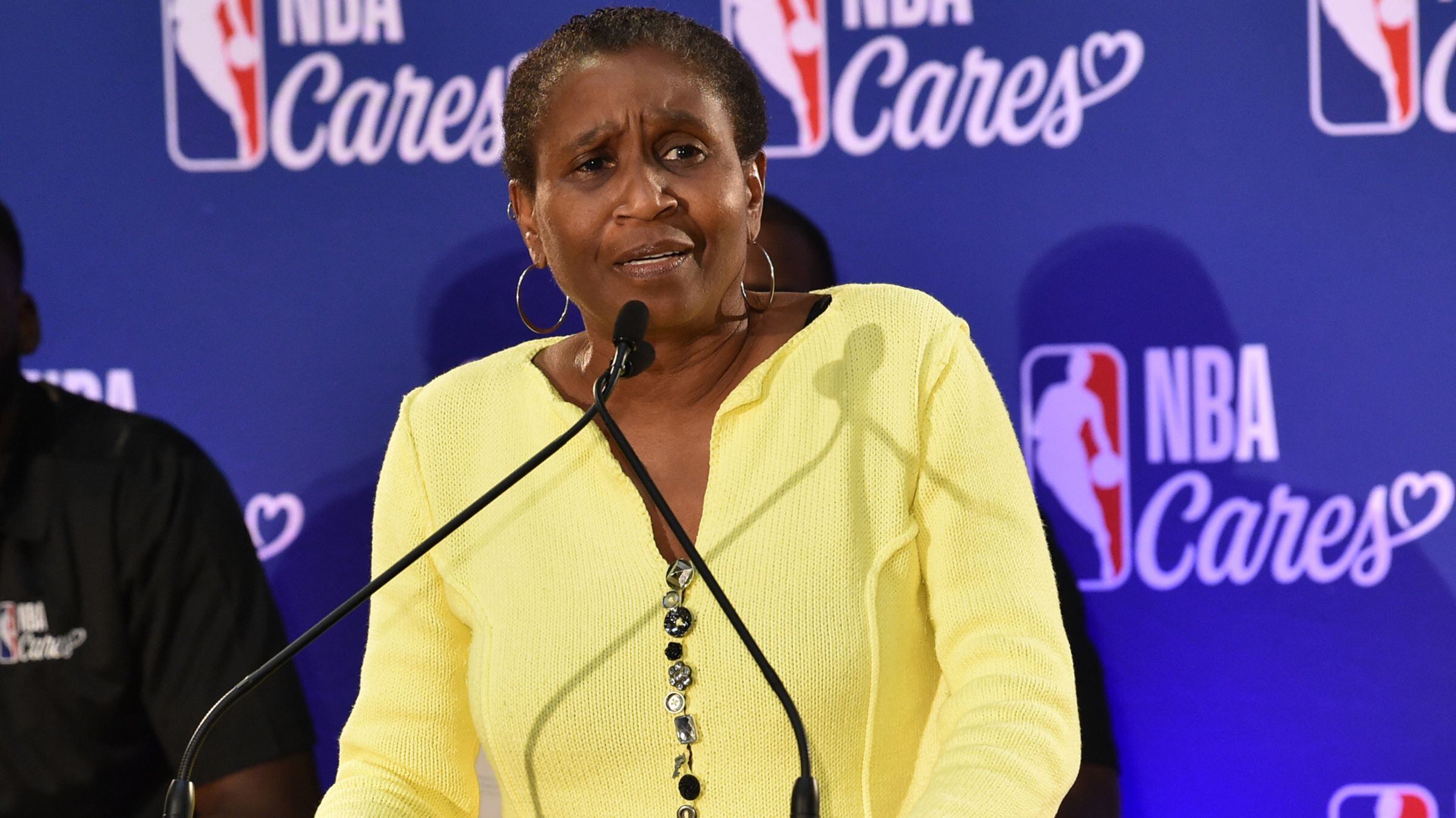There's beauty in tough conversations — even those about racism, police brutality, and underrepresentation, according to National Basketball Players Association Executive Director Michele Roberts.
"We are all saying, 'Enough,' when it comes to police accountability and the savaging of members of our community," she said during a wide-ranging interview on Cheddar.
She was referring to assertions from high-profile NBA players, like Kyrie Irving of the Brooklyn Nets, who have suggested that returning to the court in Orlando come July might distract from the Black Lives Matter movement. Irving is not alone.
Former NBA star Stephen Jackson has also said "now ain't the time" to resume play. Jackson has emerged as a leader following the death of his friend George Floyd, the Minneapolis man who was killed by police in May, igniting nationwide protests against police brutality.
Still, other players, like LeBron James of the Los Angeles Lakers have asserted that playing will not detract from his and other players' ability to make change, according to The Athletic.
Some observers say the disagreement represents a league divided, but Roberts called the discussions "fabulous."
"What is clear and undeniable is our players have, as usual, responded to pressing social issues," she said. "Apart from being spectacular athletes, which they are, these are men that have tremendous passion for their communities and they continue to express it in ways that make me very proud."
The NBPA on Wednesday released a memo outlining steps the union is taking to respond to the police killings of Floyd, Ahmaud Arbery, and Breonna Taylor, and the systemic issues they underscore. The memo details the union's intention to continue supporting players' individual philanthropic efforts.
"There is not a space with respect to systemic racism that our players don't try to touch in a meaningful way. I'm talking education, I'm talking housing, I'm talking literacy — and we will continue with those efforts," Roberts expanded.
The memo also described a new NBPA initiative, called the Police Accountability Project, which Roberts called her "baby." It entails the creation of a nationwide database of police misconduct and abuse and support for local groups and leaders who work to eradicate officials perpetuating the problem.
"We will mobilize our players wherever we can, both our resources and, frankly, the resources of the NBA, to push this matter forward because it is enough," she said.
Social justice issues are also the heart of why Roberts says she decided to throw in her stock with the cannabis industry.
Chicago-based cannabis company Cresco Labs announced on June 10 that Roberts would join its board of directors. She is the first female and first person of color to do so.
"We are advocates of a more diverse and inclusive cannabis industry, and we are thrilled to have Michele's counsel, experience and leadership to help influence the development of both our Company and this industry," Charlie Bachtell, Cresco Labs' CEO and co-founder, said in a statement.
Roberts has advocated for a more lenient stance on drug policy in the NBA for quite some time, saying in a 2018 interview with SB Nation that she believed there were "substantial signs that support its efficacy," especially for pain management.
On Thursday, she emphasized that her interest in the cannabis industry also has to do with opportunities for people of color to get in on the ground level.
"We've spent a lot of time trying to break into so-called 'traditional industries.' I've always been of the view that any new opportunities and new industries were exactly that: they were great opportunities for people of color," she said.
Although cannabis businesses are largely white-owned, the industry is still young. Roberts said she felt encouraged by ongoing conversations pushing for equity and inclusion to be baked into the industry from the start, both on the state-level, like in Illinois, as well as on the federal level.
Cresco Labs, which has launched several equity initiatives locally and on the state level, shared Roberts' goals.
"As I watched this industry grow and saw the promise that it provided, I wanted to see more people that looked like me be able to take advantage of the opportunity," she said.
Roberts has served as the executive director of NBPA since 2014. Prior to her role there, she worked for years as a trial lawyer and taught at Harvard Law as an adjunct faculty member.



